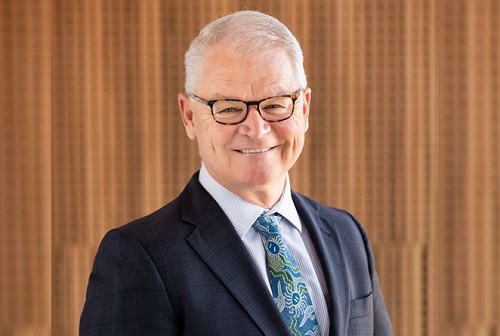
With the volatility of the world economy, the rise of artificial intelligence, and increasing globalisation reshaping the world of work, teachers need to constantly think deeply about the society in which their students will be living.
A key challenge for educators lies in equipping young people to be adaptive and avid learners, who are able negotiate a constantly changing employment environment and are able work in number of different careers throughout their working lives.
According to Dr Jim Watterston, the Dean of the Melbourne Graduate School of Education (MGSE), the way in which teachers are trained therefore needs to reflect these challenges so that they can develop the necessary skills and competencies in order to prepare the next generations for future success.
“Melbourne Graduate School of Education research clearly shows that teachers have the biggest in-school influence on student achievement,” Dr Watterston told The Educator.
“One of the key benefits of the extensive preparation we provide, is that our high-performing students are extremely well prepared for their role as a teacher.”
Dr Watterston said the structure and quality of MGSE’s Master of Teaching program, and its close partnerships with schools, ensures that the University’s pre-service teachers have a range of experiences and the opportunity to practice and refine their evidence-based judgement before they begin their careers.
“Unlike other teaching courses, from the commencement of their candidature our students spend part of their week in classrooms and the other at the University. They are constantly at work to join theory and practice,” he said.
“This model works to ensure a seamless and teach-ready trajectory into the profession. We also promote the notion that our students take on the identity of a teacher from their first day in the course.”
Dr Watterston said this, alongside their ongoing placement in schools, accelerates their understanding of the ethical, moral and societal responsibilities of the profession.
“More than ever teachers are required to be able to expertly diagnose, intervene and enhance the performance of students with particular learning needs,” he said.
Dr Watterston said MGSE prepares its prospective teachers to work in this complex environment by equipping them with the skills needed to differentiate support to students in this way.
“Fortunately, we have world class experts here at the Graduate School who are at the leading edge of contemporary research that forms the basis of our innovative, evidence-informed and comprehensive initial teacher preparation programs,” he said.
“As a former practitioner and education system leader for over 35 years, my objective as Dean of this cutting edge Graduate School, is to ensure that we are acutely focussed on producing contemporary research that successfully addresses high priority problems of practice to ensure that students across the nation and beyond, are able to reach their potential and lead successful and meaningful lives.”
Dr Watterston said designing more relevant and comprehensive secondary assessment models and ensuring that a quality focus in early childhood provision beginning from birth are just two examples of MGSE’s major priorities.
“The Graduate School has a wide range of specialist research centres and hubs. Our academics not only teach but also conduct relevant and translatable research which then feeds into the development of our programs,” he said.
“This use of research to inform teacher development is a constant iterative process and ensures that our programs are at the forefront of teacher education in Australia and the world.”


